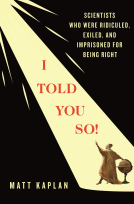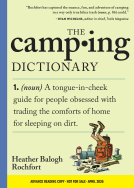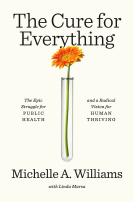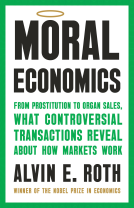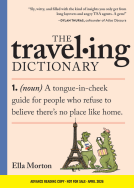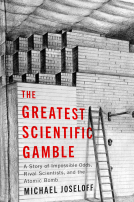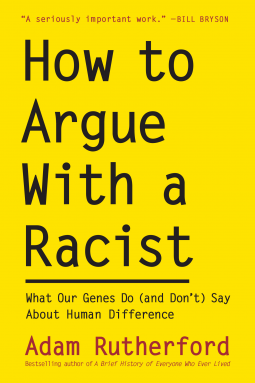
How to Argue With a Racist
What Our Genes Do (and Don't) Say About Human Difference
by Adam Rutherford
This title was previously available on NetGalley and is now archived.
Send NetGalley books directly to your Kindle or Kindle app
1
To read on a Kindle or Kindle app, please add kindle@netgalley.com as an approved email address to receive files in your Amazon account. Click here for step-by-step instructions.
2
Also find your Kindle email address within your Amazon account, and enter it here.
Pub Date Aug 04 2020 | Archive Date Aug 25 2020
Talking about this book? Use #HowtoArgueWithaRacist #NetGalley. More hashtag tips!
Description
This file is NOT currently available for Kindle. We apologize for any inconvenience. If you have difficulties with downloading, please email us (at publicity@theexperimentpublishing.com) for assistance or leave a note in lieu of a review rating.
Race is not a biological reality.
Racism thrives on our not knowing this.
Racist pseudoscience is on the rise—fueling hatred, feeding nationalism, and seeping into our discourse on everything from sports to intelligence. Even the well-intentioned repeat stereotypes based on “science,” because cutting-edge genetics are hard to grasp—and all too easy to distort. Paradoxically, misconceptions are multiplying amid today’s unprecedented surge of research on human genetics. We’ve never had a clearer picture of who we are and where we come from, and the science, when accurately understood, is a powerful and definitive ally against racism. But not nearly enough of these findings have made their way into the casual conversations we have about race.
This penetrating guide shows us how being a responsible and enlightened citizen on the matter of race today requires us to know what modern genetics actually can and can’t tell us about human difference. Racial categories still vexing our societies do not align with observable genetic differences—and those differences are, in fact, so minute that they serve as evidence of our commonality.
Advance Praise
“A fascinating and timely refutation of the casual racism on the rise around the world. The ultimate anti-racism guide.”—Caroline Criado-Perez, author of Invisible Women
“As timely as it is invigorating and important.”—Peter Frankopan, Oxford professor of global history
“Timely and accessible.”—The Bookseller, Editor’s Choice
“This fascinating, illuminating, and original book on human evolution and development is essential reading in an age of false science, resurgent racism, and conspiracy theory—and the perfect antidote to racial bigotry.”—Simon Sebag Montefiore, historian and author of The Romanovs
“Lucid, enlightening, witty, and delightful.”—Kate Fox, codirector of the Social Issues Research Centre
“Adam Rutherford is the perfect writer to arm you with evidence.”—Claudia Hammond, author of Time Warped
Available Editions
| EDITION | Other Format |
| ISBN | 9781615196715 |
| PRICE | $21.95 (USD) |
| PAGES | 224 |
Links
Average rating from 17 members
Featured Reviews
This was totally insightful and thought provoking. If someone looks differently at another person just because of skin color and religion; it's definitely defined as racism. This book is that aspect but a whole lot more. I may favor some groups as opposed to others, but I have always kept an open mind, you can learn a lot from some of a different race or religion. Yes, there were some stereotypes in this book but it was full of great observations and is a wake up call to treat others with respect and the dignity they deserve.
This was well written and not at all boring. Read this in 2 sittings during self isolation for Covd. Thanks to NetGalley, the publisher and author for an ARC in exchange for an honest review. All opinions are my own.
I didn't appreciate that the publisher didn't have an option to download to kindle. It made it quite frustrating to read and many conversations with NG support for help to download to read it. I was eventually able to read it on my laptop. Only reason I denoted a star.
 Anika P, Reviewer
Anika P, Reviewer
The book is pretty easy to follow and a good overview of the genetics that contribute to race (other parts of the human genome are also discussed). I wouldn't say How to Argue with a Racist is the "how-to" sound of the title ... just walking through all the findings in a comprehensible manner. It includes explaining what services like 23andMe and AncestryDNA can, and cannot, do.
"Racial categories still vexing our societies do not align with observable genetic differences—and those differences are, in fact, so minute that they serve as evidence of our commonality."
A clear and enjoyable book on racism by a great science writer
This is the fourth book by Adam Rutherford that I’ve read, the others being “Humanimal”, “A Brief History of Everyone Who Ever Lived”, and “Creation”, and thought all were great. I therefore had high expectations for “How to Argue with a Racist” and I wasn’t disappointed. It was much more enjoyable than “Troublesome Science” by Rob DeSalle and Ian Tattersall, and a bit better than “Everyone is African” by Daniel J. Fairbanks. Rutherford explains the science clearly and writes with a conversational tone. I don’t usually recommend reading prefaces, but the one in this book is important. It discusses why science must respond to racism and the role of racism in current issues such as COVID-19 and ongoing protests in the US. I highly recommend this book.
Disclosure: i received a complimentary copy of this book via Netgalley for review purposes.
 Reviewer 500251
Reviewer 500251
Adam Rutherford patiently, persuasively, and knowledgeably walks readers through the complete lack of biological evidence for our concept of race. How to Argue With a Racist uses contemporary genetics research to disprove commonly held beliefs, and to reinforce the simple fact that humanity is complicated. Rutherford also articulately reinforces the idea that while race is not a biological construct, race and racism are very real concepts created by society that influence everyone and everything.
Do I think you’d actually be able to argue with a racist using the information presented in this book? Maybe. It depends on if you’re dealing with a racist who believes in the reality of science. I think the prime candidates for persuasion by the arguments are those who know and understand that while they might not think of themselves as racist, they have likely engaged in racist thought, speech, or action. If you’re willing to learn about the history of race and humanity, this is an approachable primer on modern genetic understanding of both concepts.
Recommended for: book clubs, individuals who are on the waiting list(s) for books like How to Be an Anti-Racist, and anyone who has ever questioned the why of racial stereotyping.
I received a copy of this book from the publisher via NetGalley for an honest review.
 Librarian 507149
Librarian 507149
Rutherford does an excellent job establishing the background information behind race distinctions, and provides accessible explanations of the biological elements of race. The book has taken me additional time to read because he provides so much information I find I have to stop and take some time to digest all the information periodically.
 Katie N, Librarian
Katie N, Librarian
I knew this would be an interesting book just from the title, but this has become one of my favorite nonfiction books of all time! There is so much history and science mixed together. The author immediately addresses his bias from the get-go and makes sure to acknowledge his own shortcomings from research and conclusions provided. Aside from that, there is so much information to consume, some of which I already knew and was impressed to see organized so well. Also, the author provides a lovely bibliography and an alphabetized index! I know I enjoy strange aspects of nonfiction titles, but this is truly one well-written, although it may be because I agree with the overarching theme of genetics disproving any scientific backing used in racist ideology.
Readers who liked this book also liked:
Alvin E. Roth
Business, Leadership, Finance, Health, Mind & Body, Politics & Current Affairs
We Are Bookish
LGBTQIAP+, Romance, Sci Fi & Fantasy


